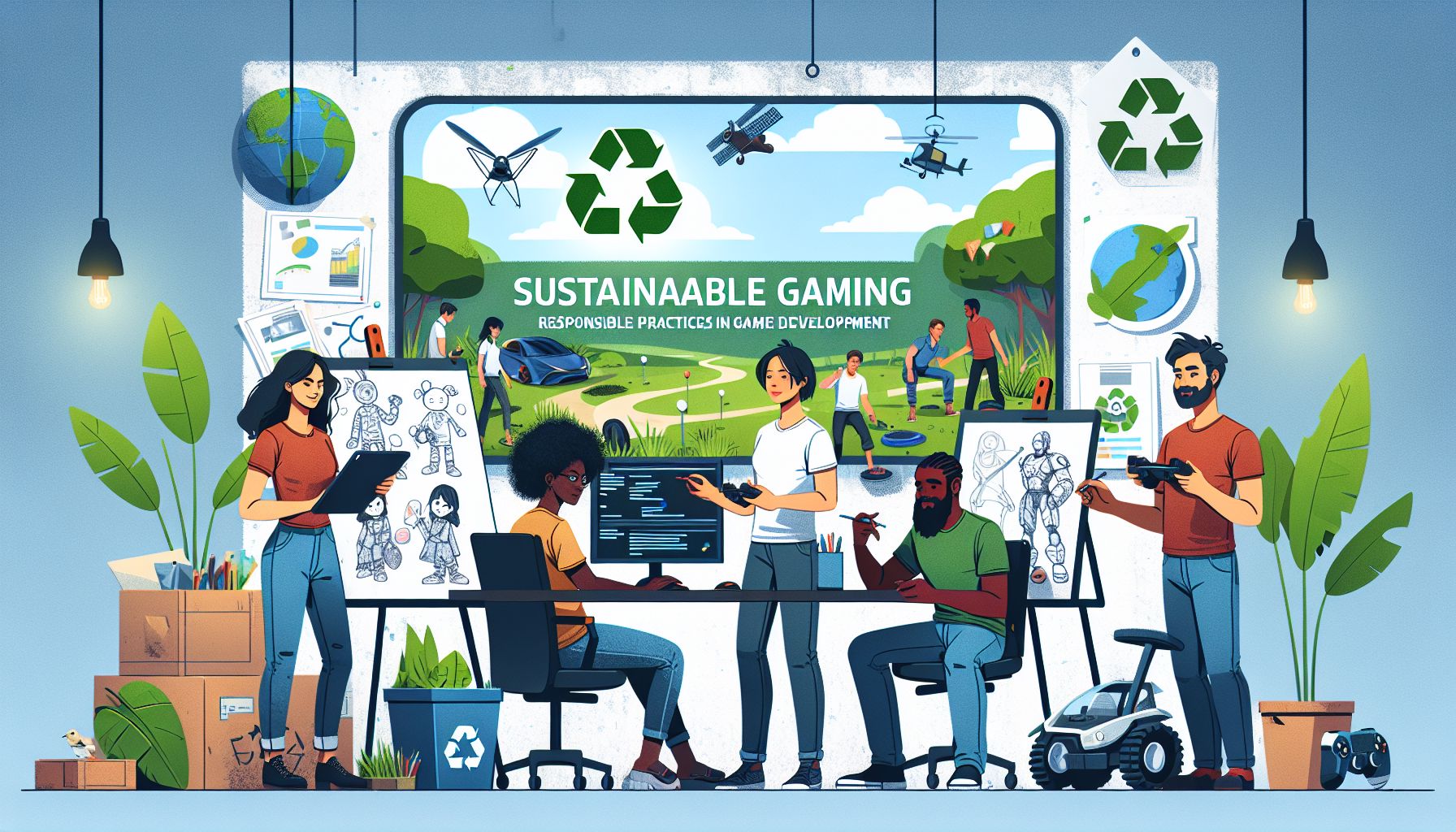The video game industry has been growing exponentially in recent years, with new technologies and platforms constantly emerging. As many people turn their attention to gaming, it’s important to consider the environmental impact of this popular form of entertainment. From the manufacturing and disposal of physical games and consoles to the energy consumption of online gaming, the industry has a significant carbon footprint. However, developers and gamers alike can make a positive impact by adopting sustainable practices in game development and gameplay. In this blog post, we’ll explore the concept of sustainable gaming and the responsible practices that can help reduce its environmental impact.
Understanding Sustainable Gaming
Sustainable gaming, also known as eco-gaming, refers to the environmentally-conscious approach towards game development and gameplay. It involves designing and producing games in a way that minimizes the negative impact on the planet and its resources. This concept goes beyond simply reducing carbon emissions; it also encompasses sustainable production methods, ethical treatment of employees, and responsible use of resources in the gaming industry.
Sustainable gaming is not a new idea; it has been gaining traction in recent years as people become more aware of the environmental concerns around them. The rising popularity of online gaming has also played a significant role in driving the conversation about sustainable gaming. With millions of people playing online games, the energy consumption and carbon emissions from servers, data centers, and gaming devices have become a major concern.
Sustainable Practices in Game Development
Game development involves various stages, from concept and design to production and distribution. Each of these stages has an environmental impact, and incorporating sustainable practices can reduce the overall carbon footprint. Here are some responsible practices that game developers can adopt to promote sustainability.
Use Renewable Energy Sources
One of the most significant contributors to the carbon footprint of the gaming industry is the energy consumed by gaming devices and servers. To reduce the environmental impact, game developers should consider using renewable energy sources to power their operations. This can include using solar panels or wind turbines to generate electricity for their offices and data centers.
In addition to powering their own operations, game developers can also work with data centers and server providers that use renewable energy sources. This can significantly reduce the carbon emissions from online gaming.
Optimize Game Performance
As game developers work towards creating visually stunning games, they often overlook the impact on the environment. High-quality graphics and complex gameplay can lead to increased energy consumption in gaming devices. To reduce this impact, developers should optimize their games for performance, making them less resource-intensive.
For example, reducing the number of animations and textures in a game can significantly decrease the energy consumption of gaming devices. This not only benefits the environment but also allows the game to run on a wider range of devices, making it more accessible to players.
Use Sustainable Materials
Physical game copies and consoles contribute to the environmental impact of the gaming industry. The production of these items involves the use of various materials, such as plastic and metal, which have a substantial carbon footprint. To reduce this impact, game developers can use sustainable materials in the production of physical copies and consoles.
In recent years, we’ve seen an increase in the use of recycled materials in gaming products, such as game cartridges made from corn starch and game cases made from recycled paper. These small changes can make a big difference in reducing the environmental impact of physical gaming.
Promote Ethical Labor Practices
While sustainability primarily focuses on the environmental impact of game development, it’s also essential to consider the ethical treatment of employees. Game developers should ensure fair labor practices and a safe working environment for all their employees. This includes fair pay, reasonable work hours, and proper health and safety measures in the workplace.
By promoting ethical labor practices, game developers can create a positive impact not only on the environment but also on the well-being of their employees.
Responsible Practices in Gameplay
Sustainable gaming doesn’t end with responsible game development. Gamers can also make a positive impact by adopting responsible practices while playing their favorite games. Here are some practical tips for responsible gameplay.
Reduce Physical Gaming
As mentioned earlier, physical game copies and consoles have a significant environmental impact. By switching to digital versions of games, gamers can significantly reduce their carbon footprint. With the rise of digital distribution platforms, buying and downloading games has become more accessible and convenient.
For those who prefer owning physical copies of games, buying second-hand or renting games can also be a more sustainable option. It reduces the demand for new physical copies, leading to less manufacturing and disposal of game products.
Conserve Energy While Gaming
Gaming devices consume a high amount of energy, especially when running for long periods. By simply turning off the device when not in use or using the power-saving features, gamers can reduce their energy consumption. Additionally, choosing to play games on a laptop rather than a desktop computer can also decrease energy consumption.
Support Sustainable Game Developers
When choosing what games to play, gamers can also consider supporting sustainable game developers. Look for eco-friendly game developers and support their efforts towards sustainable gaming. You can also check for games that explicitly promote sustainability or have environmental themes.
Conclusion
Sustainable gaming is a critical aspect of the gaming industry that should not be overlooked. As the industry continues to grow, the impact on the environment will only increase. Therefore, it’s essential for both game developers and gamers to adopt responsible practices to mitigate this impact. By using renewable energy sources, optimizing game performance, using sustainable materials, promoting ethical labor practices, and practicing responsible gameplay, we can all contribute to a more sustainable future for gaming. Let’s join hands and work towards a greener, more responsible gaming industry.


